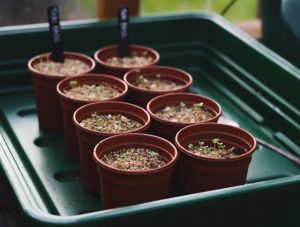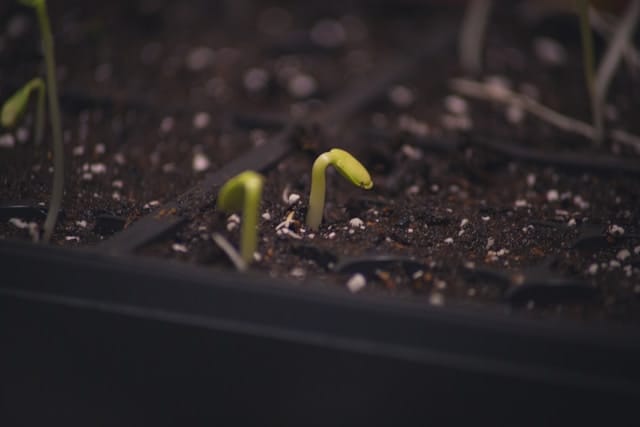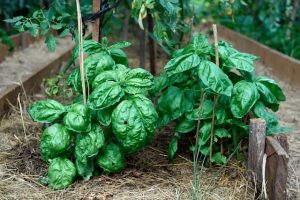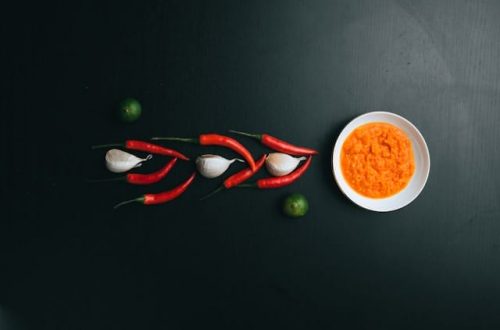Hey there, flavor enthusiasts! Chef Spice Harrington here, ready to chat about something near and dear to my heart: growing your own spices and herbs. Seriously, there’s nothing quite like stepping out into your garden and snipping fresh herbs to elevate a dish. It’s not just about the taste (although that’s a HUGE part of it!); it’s about the connection to your food, the joy of nurturing something, and the sheer satisfaction of saying, “I grew this!”
Why Grow Your Own Spices?
Okay, let’s be real. You can buy spices at the store, no sweat. But let me tell you, the flavor of freshly grown herbs is on a whole other level. It’s brighter, more vibrant, and just… well, alive. Plus, you control the quality, you know exactly what’s going into your food, and you can avoid all those mystery ingredients and preservatives. And honestly, it can be a wonderfully relaxing hobby. Think of it as culinary therapy!
Best Spices and Herbs for Home Gardens
Alright, so what should you grow? Here are a few of my absolute favorites, perfect for beginners and seasoned gardeners alike:
- Basil: Sweet, fragrant, and incredibly versatile. Perfect for pesto, pasta sauces, salads, and so much more. I mean, who doesn’t love a good Caprese salad?
- Mint: Refreshing and invigorating. Great in teas, cocktails (mojitos, anyone?), and even savory dishes like lamb. Just be careful – it can be invasive, so grow it in a container!
- Rosemary: Woody and aromatic, adding a touch of earthy sophistication to roasted meats, potatoes, and breads. I love adding a sprig to olive oil for dipping.
- Thyme: Earthy and slightly lemony. Fantastic in soups, stews, and sauces. It’s also super easy to grow, even in poor soil.
- Chives: Mildly oniony flavor. Perfect for garnishing soups, salads, and omelets. They’re also adorable with their little purple flowers.
- Oregano: Robust and pungent. A must-have for Italian and Mediterranean cuisine. Pizza night just isn’t the same without it!
- Parsley: Fresh and grassy. A workhorse in the kitchen, used in everything from salads to sauces to garnishes. Flat-leaf (Italian) parsley is my go-to.
Getting Started: Planting and Care
So, you’re ready to get your hands dirty? Awesome! Here are a few tips to get you started:
- Location, Location, Location: Most herbs need at least 6 hours of sunlight a day. Choose a sunny spot in your garden or on your balcony.
- Soil: Well-draining soil is key. You can use a good quality potting mix if you’re growing in containers, or amend your garden soil with compost.
- Watering: Don’t overwater! Let the soil dry out slightly between waterings. Soggy soil can lead to root rot.
- Fertilizing: Herbs generally don’t need a lot of fertilizer. A light feeding with a balanced organic fertilizer in the spring is usually enough.
- Pruning: Regular pruning encourages bushier growth and prevents your herbs from getting leggy. Plus, you get more herbs to use!
Harvesting and Drying for Optimal Flavor
Okay, this is where the magic happens! Here’s how to harvest and dry your spices to preserve their flavor:
Harvesting
The best time to harvest herbs is in the morning, after the dew has dried. Use sharp scissors or pruning shears to cut the stems. For leafy herbs like basil and mint, cut just above a leaf node (where the leaves grow from the stem). This will encourage new growth.
Drying
There are a few different ways to dry herbs:
- Air Drying: Tie small bunches of herbs together with twine and hang them upside down in a cool, dry, well-ventilated place. A pantry or closet works well. This can take a few weeks.
- Oven Drying: Spread the herbs in a single layer on a baking sheet and dry them in a very low oven (around 170°F or 77°C) for a few hours, until they are brittle. Keep a close eye on them to prevent burning.
- Dehydrator: If you have a food dehydrator, you can use it to dry herbs quickly and easily. Follow the manufacturer’s instructions.
Once the herbs are completely dry, store them in airtight containers in a cool, dark place. Properly dried herbs can last for up to a year!

Spice Up Your Life!
Seriously, growing your own spices is one of the most rewarding things you can do in the kitchen. It’s a small investment of time and effort that yields HUGE flavor benefits. So, grab some seeds or seedlings, get your hands dirty, and start growing! You won’t regret it. And who knows, maybe you’ll even discover a new passion for gardening along the way.
And hey, if you try any of the Forking Seasonings blends with your homegrown herbs, let me know how it goes! I’m always looking for new ways to spice things up.
Happy gardening, and happy cooking!







